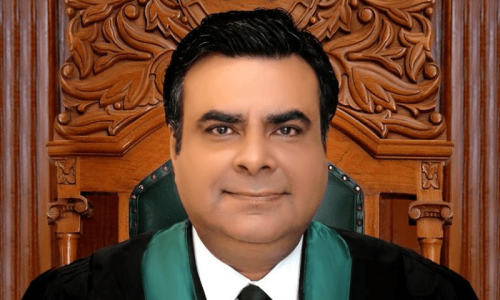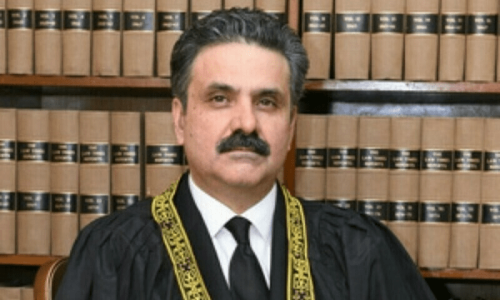QUETTA: The president Arts Council of Pakistan (ACP), Karachi, on Monday announced the two-day Pakistan Literary Festival 2024 in the provincial capital.
The festival will be held on May 15 and 16, Mohammad Ahmed Shah announced while speaking at a press conference along with President of Balochistan Union of Journalist Khalil Ahmed and Quetta Press Club General Secretary Banaras Khan.
Mr Shah said that renowned personalities in the fields of literature, film, theatre, music and entertainment and politicians will attend the festival which will be held in Balochistan University of Information Technology, Engineering and Management Sciences.
“Organising a festival in Balochistan is a heartwarming endeavour. I have come to Quetta to host a literary festival. I aspire to embrace all languages and cultures,” Mr Shah said.
Renowned personalities from film, literature, theatre, music, entertainment and politics to participate in the event
He said that Arts Council of Pakistan, Karachi, is not governed by the government and it is being run as an NGO.
He underscored the deep-rooted historical ties between Balochistan and Sindh, noting active participation of Balochi writers and poets in Karachi.
He said the festival encompasses various local languages including Balochi, Brahvi, and Pashto, with 75 per cent of participants hailing from the province.
Mr Shah said that during the festival, sessions focusing on ancient ties between Balochistan and Sindh will also be held.
He said though this will be the first festival of its kind in Quetta, it will not be their last, expressing the ACP’s commitment to maintain this initiative.
He highlighted the involvement of literary figures alongside government representatives to address issues relevant to Balochistan.
He said the youth of Lyari, an area in Karachi that is often referred to as mini-Balochistan, are actively involved in the Arts Council of Pakistan, Karachi.
“We have students from Khuzdar who come to study in Arts Council of Pakistan, Karachi. I am grateful to the Quetta Press Club for extending us a warm welcome. After consultations, we have decided to organise a grand musical festival, bringing together Balochistan’s musicians.”
He praised the work of the Balochi Academy and highlighted the presence of Balochi books in the library of the Arts Council of Pakistan, Karachi.
He said he is endeavouring to connect art institutions of the country.
He expressed concern over disillusionment among the youth of Balochistan, adding that unemployed youth will not rest until they are assured of resolution of their problems.
He clarified that this is not a political, but a cultural event and the purpose of the political sessions at the festival is to present public representatives before the people.
Published in Dawn, May 14th, 2024
















































Dear visitor, the comments section is undergoing an overhaul and will return soon.